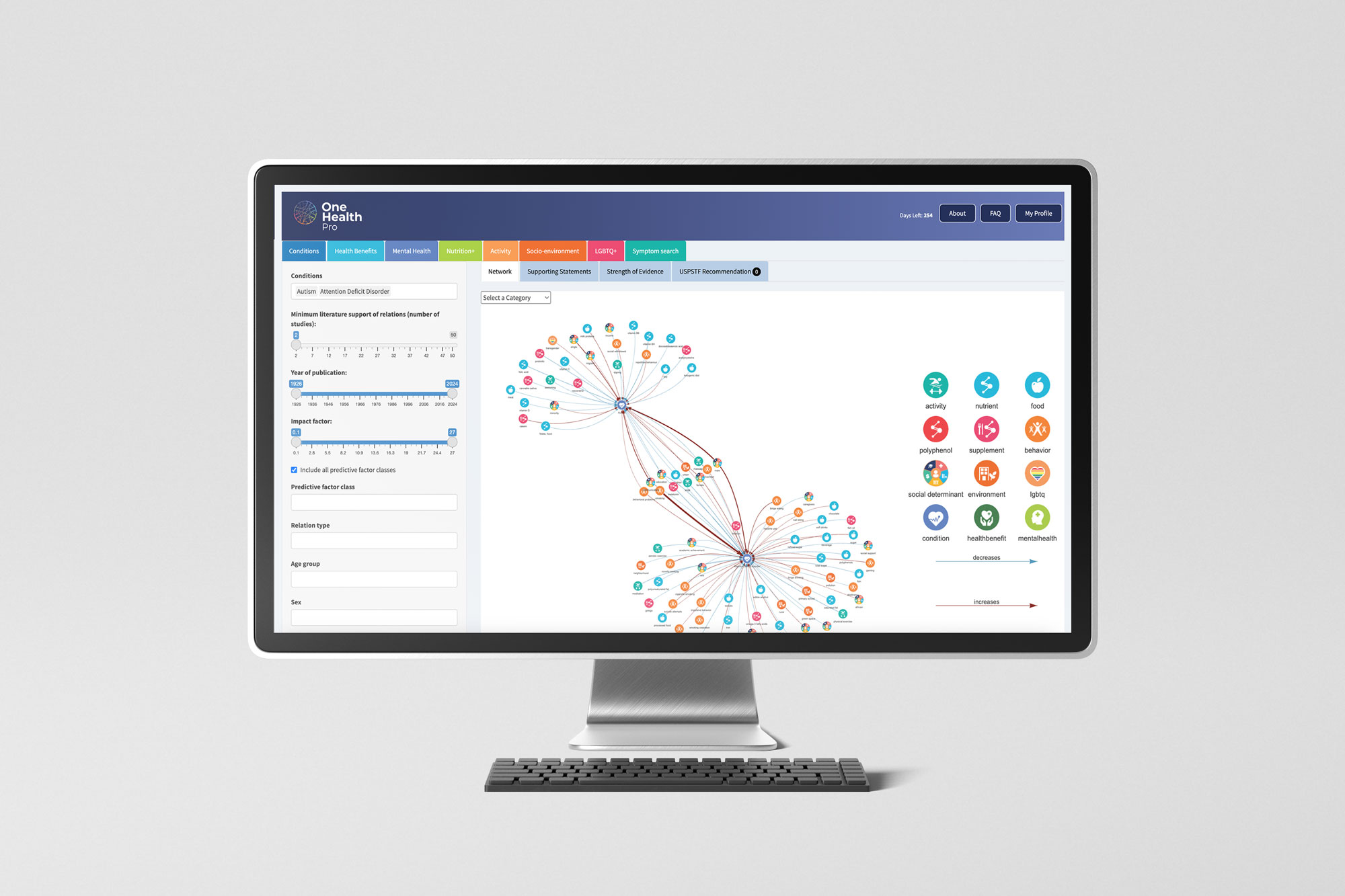The internet is filled with opinions about Autism. Some helpful, some misleading, most confusing. Search “Autism diet” or “natural therapies for Autism,” and you’ll get millions of hits—TikTok reels, out-of-date summaries of old studies, blog posts with more anecdote than analysis.
Even well-meaning clinicians and researchers often fall into the same trap: they’re overloaded by information, siloed by specialty, or blocked by tools that weren’t built to make sense of the lifestyle-health connection.
This is exactly the problem OneHealth AI was built to solve.
Autism: A Complex Condition That Demands Connected Thinking
Autism Spectrum Disorder (ASD) is not one condition. It’s a mosaic of neurological, behavioral, metabolic, environmental, and social factors—often overlapping with comorbidities like ADHD, anxiety, gastrointestinal issues, and sleep disorders.
Traditional research methods look at one factor at a time. One study might examine casein-free diets. Another might test the effects of Qigong massage. A third might connect soy-based infant formula to symptom severity.
But rarely—if ever—do they talk to each other.
OneHealth Pro does.
Using our Autism + ADHD use case, OneHealth AI identified:
Shared beneficial interventions across both conditions, like omega-3 supplementation, structured physical activity, and screen-time reduction.
Contradictory effects of certain dietary factors, helping providers and researchers understand where more nuance is needed.
Strength-of-evidence rankings across every relationship, making it easy to distinguish highly supported interventions from emerging or weak signals.
All in seconds. All with links to the original studies. All powered by our AI pipeline built on more than 40 million research articles, structured into a directional knowledge graph with over 9,400 evidence-based relationships.
For Clinicians, Researchers—and Investors
For clinicians, using our OneHealth Pro too (powered by OneHealth AI) means smarter consultations. Imagine being able to say to a caregiver:
“There’s strong evidence that massage therapy can reduce tactile sensitivity and improve emotional regulation in children with Autism and ADHD. Want to try integrating that?”
Your next treatment breakthrough might be a lifestyle factor you’re weren’t trained to recognize. This allows you to:
- Cut research time from hours to seconds.
- Visualize multi-factor interventions with strength-of-evidence rankings.
- Provide families with practical, evidence-backed options beyond prescriptions.
For researchers, using OneHealth Pro means faster hypothesis generation and validation. Instead of running endless Boolean strings in PubMed, you get immediate visibility into multi-factorial relationships—and clarity on where the evidence is strong, weak, or absent.
For investors, it gives you a glimpse at the future of precision lifestyle health—a platform that doesn’t just tell you what worked in one study, but what is likely to work for real people in real-world conditions.
This isn’t search. It’s accurate intelligence delivering curated, evidence-ranked, interconnected insight.
From a Search → to Precision Guidance
The Autism search demonstrates OneHealth Pro’s ability to:
Map positive and negative lifestyle-health relationships (such as ketogenic diets decreasing symptoms; soy-based infant formula increasing risk).
Reveal controversial or contradictory findings with full citation and strength-of-evidence transparency.
Surface non-obvious interventions (such as massage therapy, Qigong, swimming) that clinicians and caregivers may never encounter in standard care.
Support whole-person guidance by connecting diet, supplements, activity, and maternal behavior before/during pregnancy.
No other tool translates 40M+ studies into actionable, individualized insights like this.





